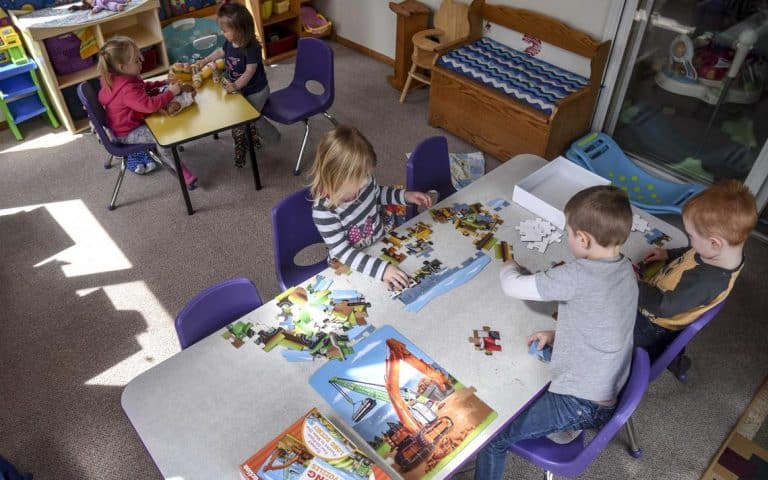WILLMAR — Home-based child care providers are another segment of the overall economy suffering during the coronavirus shutdown.
“They have not been closed by the governor, but they are facing some challenging times. They are operating at about 50 percent capacity right now,” said Aaron Backman, executive director of the Kandiyohi County and City of Willmar Economic Development Commission.
To assist these crucial businesses, who could be providing care for the children of essential workers such as health care professionals and emergency responders, the EDC Joint Powers Board at its meeting Thursday approved the establishment of the Child Care Business Assistance Grant Program.
“We think this could be something meaningful for our providers,” Backman said.
The grants will be small, only about $250 per provider. Backman said each of the county’s approximately 95 licensed home providers will receive the money. The hope is the money will be used to help providers pay for increased expenses tied to the pandemic or limit the pain from decreased revenue caused by fewer children in care.
“I think this is an opportunity to help our day care providers,” said Willmar City Councilor Fernando Alvarado, who serves on the joint powers board.
The EDC will be using $24,000 in unreserved funds to fund the new program. Backman said there have also been discussions with other partners about matching funds for the grants, perhaps another $5,000 to $10,000.
The motion to approve the new program passed unanimously. Kandiyohi County Commissioner Steve Ahmann raised some concerns about where the EDC draws the line regarding loan programs and whether there are other business sectors in more need of aid. In the end though, he too approved the measure.
“Where do we stop and start? I am concerned about helping in this situation but not in others,” Ahmann said.
Backman said he understood those concerns.
“We don’t have unlimited funds,” Backman said. “It is hard to help every sector.”
The EDC still has money available for its COVID-19 Business Assistance Loan Program, which the group started in late March to assist those businesses who have either had to close or significantly decrease operations due to the pandemic. Restaurants, bars and salons have been given priority.
Approximately $65,000 out of the $150,000 earmarked has been given to businesses as low-interest loans. The maximum loan amount allowed is $5,000.
“One of my priorities, I want to make sure we are taking care of, as best as we can, our family-owned businesses, our locally owned businesses,” Backman said.
So far, the EDC has received 23 applications for assistance and 13 of them have been approved. The EDC Finance Committee has been meeting several times to review the applications.
“They have been busy,” Backman said.
The terms of the short-term emergency loan include a 0 percent interest rate, however recipients will be charged a 1 percent loan origination fee. The loans will be for a maximum of 24 months with the potential for payments to be deferred.
There was discussion about opening the loan program up to more types of businesses, but the board decided to leave it as is.
“Because the need is so great, we should honor the program in place,” said Willmar City Councilor Kathy Schwantes.
The joint powers board on Thursday also deferred payments for a handful of revolving loan and microenterprise loans, to assist the business owners during the COVID-19 economic downturn.
“This is exactly what we are supposed to be doing. Helping those who are definitely at risk,” said Ahmann. “I just wish it didn’t happen.”
Article was written by Shelby Lindrud for the West Central Tribune on

